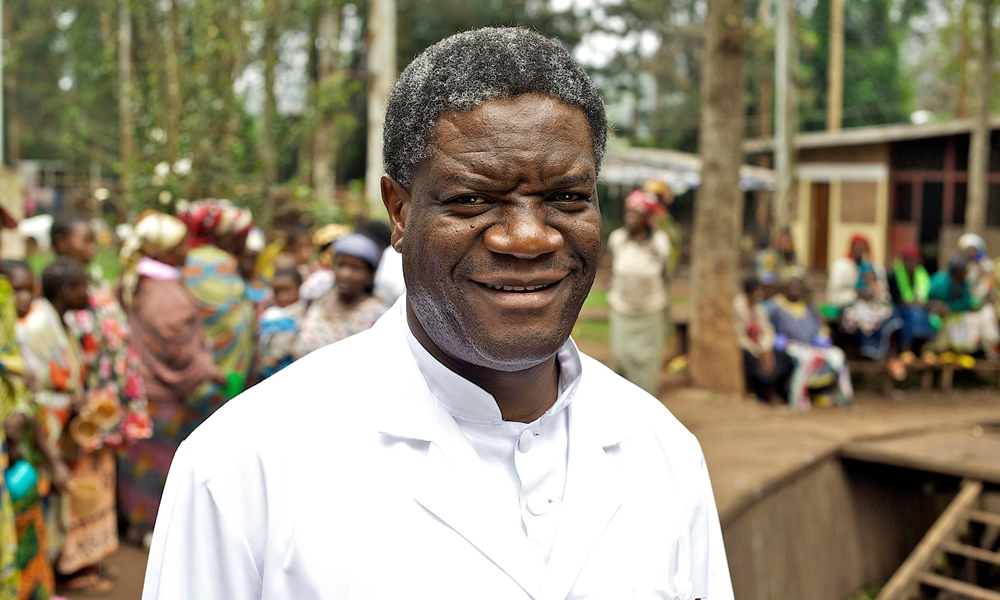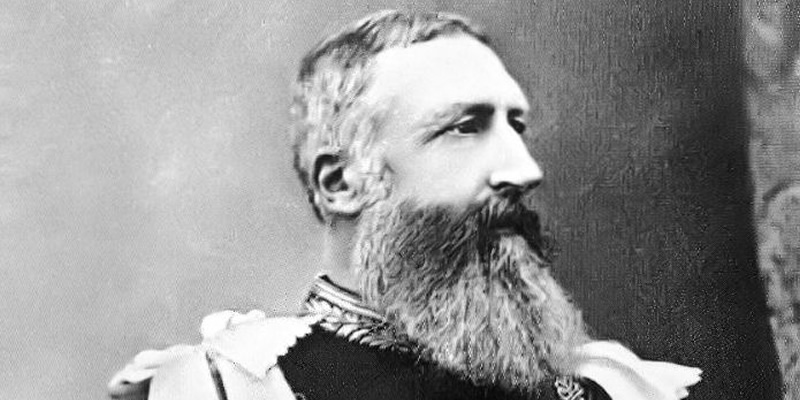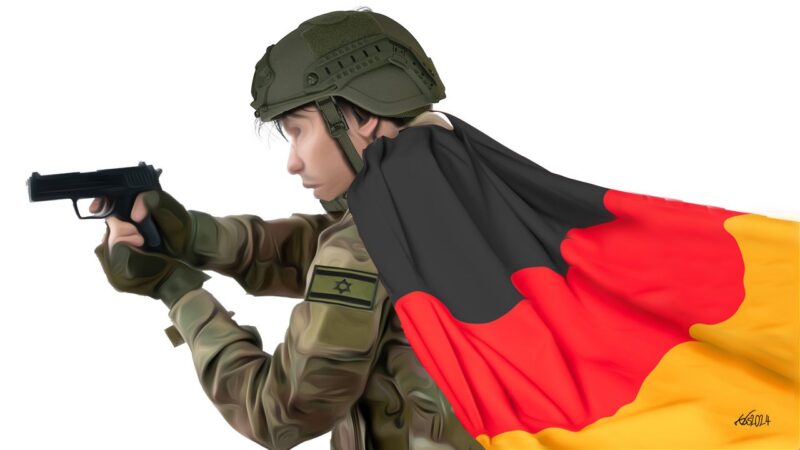This year the Nobel Peace Prize went to the Congolese gynaecologist Denis Mukwege, a doctor who is known for his amazing skills in repairing through reconstructive surgery the terrifying damage inflicted on women who have been raped.
Although official data from the government states that sexual violence has declined in the Democratic Republic of the Congo, the so-called “rape capital of the world” still remains hell on earth for countless women. Congo is a country where sexual violence has been (and probably still is) used as a weapon of war, mirroring the traumatic colonial experience it went through. But weaponised sexual violence does not occur only in this country; it is a very well-known and widespread practice in almost every theatre of war across the globe.
Doctor Miracle’s crusade
Dr. Denis Mukwege, the so-called “Doctor Miracle,” is not the first black African to receive the Nobel Peace Prize. The first recipient was Albert Luthuli, who was awarded the prize in 1960 for his non-violent activism against apartheid. Since then, many African personalities, such as Nelson Mandela, Wangari Maathai, and Leymah Gbowee, have won the Nobel Prize for their relentless non-violent struggle for the safety of African men and women whose civil rights are routinely violated. Every time a Peace Nobel is awarded, we can’t but celebrate the impressive efforts that these men and women did to make Africa (and the entire world) a better place. Yet, it is sad to think that in 2018, we still need people like them to fight for human rights that we should have for granted across the entire globe. The world would really be a better place when there is no need to award a Nobel Peace Prize anymore.

Denis Mukwege is one of the few Africans who were fortunate enough to have the opportunity to train and graduate in gynaecology in France. However, he did not choose to pursue a better, high-paying career in Europe. Rather, he came back to the Congo to help those who needed him most. He studied medicine because he wanted to assist women in his own country where pregnant women were dying unnecessarily during childbirth due to complications.
Dr. Mukwege’s life’s mission changed in 1999 when he encountered a woman whose genitals had been horrifically mutilated after soldiers raped her with a gun, which they then fired. “Her whole pelvis was destroyed. I thought it was the work of a madman, but the same year I treated 45 similar cases,” he explained. The same year, he founded the General Referral Hospital of Panzi in Bukavu, DRC, and spent the next 20 years advocating for women’s rights internationally. Since then, he and his team of specialists have changed the lives of more than 40,000 victims of rape. The gynaecologist is now recognised as one of the world’s leading experts on repairing injuries caused by sexual violence.
Dr. Mukwege’s life’s mission changed in 1999 when he encountered a woman whose genitals had been horrifically mutilated after soldiers raped her with a gun, which they then fired. “Her whole pelvis was destroyed. I thought it was the work of a madman, but the same year I treated 45 similar cases,” he explained.
Dr. Mukwege never stopped spreading the message about the atrocities perpetrated not just in the Congo, but in every other country where rape is used as a weapon of war – a weapon that is more devastating than bullets and bombs. Doctor Miracle lobbied to raise awareness about a heinous crime that destroys entire families through social stigma, that devastates human bodies through mutilation, that spreads diseases, and that leaves behind a trail of unwanted children that serve as a living reminder of the injustices of war.
In September 2012, Dr. Mukwege had the courage to address the United Nations where he criticised the Congolese government and neighbouring countries for their lack of commitment to stopping “an unjust war that has used violence against women and rape as a strategy of war“. A month later, a group of four men took his daughters hostage and killed his guard during an assassination attempt. After he narrowly escaped death, he was forced into exile in Europe for a few months. He came back to Bukavu on January 14, 2013 after his patients raised funds to pay for his return ticket by selling pineapples and onions.
Named African of the Year in 2009, the 63-year-old doctor has been the recipient of numerous other prizes and accolades, including the UN Human Rights Prize. And it’s not a coincidence that Dr. Mukwege keeps receiving awards to this very day even the war in the DRC officially ended in 2003. In the DRC and in other parts of Africa, rape is still used very frequently as a tactic to brutalise entire communities and to control the continent’s immense wealth. Nonetheless, is one of the most underreported war crimes that often occurs with the complicity of the deafening silence of the international community.
Colonial legacy
Under the Belgian King Leopold II’s brutal regime, the population of Congo was halved from 20 million to 10 million due to deaths by disease, starvation, and torture. The levels of savagery and cruelty reached by the Belgian colonialists and their minion army have rarely been witnessed throughout human history. Countless women were kidnapped and raped and children were forced into labour camps where they were routinely whipped and abused. The hands of labourers who didn’t meet their daily quota of rubber were brutally chopped off. In 1886, a German journalist counted that the puppet soldiers of Leopold’s army severed over 1,300 hands in one day, including those of many children.
These heinous crimes were committed by the Belgians with the silent consent of the Americans and the Europeans, who had a voracious hunger for rubber and ivory. Raw materials were in high demand, as they were needed to drive the industrialisation process that brought motorised transport and many other commodities in Western countries. It didn’t matter if they came at the expense of millions of Congolese lives lost – the Belgians’ thirst for blood was as unquenchable as their King’s lust for new riches. By exploiting the Congo, Belgium became a wealthy nation that was even admired for its philanthropic efforts in civilising the “savages” who inhabited the country. As an African proverb says, “Until the lions have their historians, the tales of hunting will always glorify the hunter.”
The levels of savagery and cruelty reached by the Belgian colonialists and their minion army have rarely been witnessed throughout human history. Countless women were kidnapped and raped and children were forced into labour camps where they were routinely whipped and abused. The hands of labourers who didn’t meet their daily quota of rubber were brutally chopped off.
Eventually, independence came in 1960, but the country’s nightmare was not over. After the first democratically elected Prime Minister Patrice Lumumba’s assassination in 1961, Belgium and the United States supported the dictatorship of Mobutu Sese Seko, a corrupt leader who kept Congo on a short, West-friendly leash for another 30 years.
Even after Mobutu was finally overthrown in 1997, a new war consumed the country, leaving at least 4 million people dead and countless victims of rape, torture, violence, and human exploitation in its wake. Today, it’s hard to tell whether the vicious cycle of brutality that continues to ravage the Democratic Republic of Congo is the legacy of one century of colonialism.

The Western press has every interest in reinforcing the stereotypical idea of African countries being doomed to failure and tribalism after their white paternalistic guides left them on their own. Nonetheless, it’s undoubtedly true that those who are exploiting the human and natural resources of Congo through violence are black Africans who learned their lessons from their colonial forefathers. But while Western interference never stopped being present in the country, those who govern Congo today must be held fully accountable for every crime they keep committing.
Rape as a weapon of personal destruction
Rape is always an atrocity, but what happened in Congo in the last few decades is well beyond horror. Women of all ages were dragged into forests by militia, tied to a tree and raped for months. The internal walls of their genitalia got torn as a result of repeated forced intercourse. Objects, such as guns, were also frequently brutally shoved into their vaginas. The rapists did not consider the age of their victims. As Cecile Mulolo, the psychologist at the Panzi Hospital, explained in an interview a decade ago, the oldest victim she came across was in her 80s and the youngest was just 16 months old.
When the walls of the uterus and bladder are perforated, a fistula forms, which prevents the woman from being able to control her bowels. Urine comes out involuntarily, and chronic pain becomes a constant companion. This mutilation becomes her mark, as she is ostracised by her husband and villagers treat her like a leper. The violence thus never stops after the atrocity.
Rape is always an atrocity, but what happened in Congo in the last few decades is well beyond horror. Women of all ages were dragged into forests by militia, tied to a tree and raped for months. The internal walls of their genitalia got torn as a result of repeated forced intercourse. Objects, such as guns, were also frequently brutally shoved into their vaginas. The rapists did not consider the age of their victims. As Cecile Mulolo, the psychologist at the Panzi Hospital, explained in an interview a decade ago, the oldest victim she came across was in her 80s and the youngest was just 16 months old.
Sometimes the aggressors are so angry, drunk, or just mad that they even fire their guns while they’re inside the women. The consequences are beyond devastating. Those who are lucky (or unlucky, depending on the point of view) to survive must bear the consequences of this horrific act of violence for the rest of their lives. The repulsive moments they endured are forever lodged in their minds and the physical and psychological after-effects of the rape stay with them forever.
Rape is an abhorrent practice that knows no gender either. Males are raped almost as frequently as females, and possibly even more. A survey published in the Journal of the American Medical Association found that in Eastern Congo 22% of men reported that they had been raped during the war, compared to 30% of women. But since fewer than 1 in 10 male rapes are reported because of the heavy social stigma associated with it, it’s easy to understand how these numbers can be much higher.
Rape is an unacceptable act of violence that dehumanises those who experience it. Even the few who are not excluded from their own community must live with the shame of what happened to them. Women are victimised twice as they must bear the burden of rape in the form of unwanted children who will grow up as estranged human beings marred by a crime they didn’t commit. Sexual crimes in war must be dealt with zero tolerance, and not any differently from how the international community views chemical and biological warfare.
The indifference and guilt of the international community
Sexual violence has been used as a terror tactic during wartime for centuries. Rape is used to humiliate and dominate the enemy, and when the conflict originates from ethnic reasons, it can also be used as an instrument of ethnic cleansing. The Rwandan genocide of 1994 is a known example of this, as evidence suggests that military leaders actively endorsed this practice. Muammar Gaddafi went as far as purchasing a large number of Viagra-like drugs to “encourage” his troops during the Libyan civil war. This is not a problem that affects just Africa; war rape happens, again and again, every time a conflict erupts between two different religious, ethnic, or cultural groups. It happened in the Darfur region in Sudan, during the Bosnian wars, and to oppress the Tamil minority in the Sri Lankan conflict.
But what did the international community do to stem this plague? Well, for the most part they talked a lot about it and did a lot of “condemning”. But in practice they did not do much. When the Bosnian rape camp where the Serbian troops kept Muslim and Croatian women captive in order to impregnate them were found in 1993, rape was finally recognised as a crime against humanity by the Geneva Convention. But in the aftermath, the International Criminal Tribunal for the former Yugoslavia found a total of just five men guilty of crimes against humanity in the form of rape and sexual enslavement. Despite the many (rather weak) actions taken by the UN to prevent wartime sexual violence from occurring, including the famous resolution 1820 that defined this practice as a war crime, mass rapes are perpetrated over and over again everywhere. Condemning is not enough, it never was enough.
But what did the international community do to stem this plague? Well, for the most part they talked a lot about it and did a lot of “condemning”. But in practice they did not do much.
But why take action after a rape has been committed when common sense would suggest that the best way to stop a crime is to prevent it from happening in the first place? On several occasions, the UN’s peacekeeping forces have failed the local population, leaving local militia and rebels free to wreak havoc on civilians. Ten years ago, the perpetrators of the Rwandan genocide fled to Congo, and together with the Congolese Mai-Mai militia, they began a spree of sacking and gang-raping 20 miles from a UN base. Why did the “keepers of the peace” ignore the warnings of the local community leaders?
The truth is actually worse than one can imagine. When over 95% of peacekeeping soldiers are males who carry out their operations in a hyper-masculine cultural environment, that’s nothing short of a disaster waiting to happen. Abuse and sexual exploitation of women and minors have a long-standing history, and all of the major contingents of the UN peacekeeping forces eventually appear to be implicated. During the 1993 Bosnian genocide, for example, UN soldiers took advantage of brothels in Sarajevo run by Serbian slavers who forced local women into prostitution. In Sudan, when the civilians took shelter in their headquarters, the Egyptian peacekeeping army raped at least six women who were they were supposed to be protecting. The Uruguayan peacekeeping contingent had to be withdrawn from Haiti because of protests sparked by the rape of a 14-year-old boy. In Congo, senior officials were even accused of bribing witnesses in an attempt to cover up several sexual scandals. The sexual exploitation and abuse of children by UN peacekeepers have also been reported in other strife-torn countries, including Liberia and Sierra Leone.
As a weapon, rape is much more devastating than bullets. To quote the words of Jeanna Mukuninwa, a 28-year-old victim of rape from Shabunda, Congo: “At least with a bullet, you die. But if you have been raped, you appear to the community like someone who is cursed. After rape, no one will talk to you; no man will see you. It’s a living death.”
African women don’t need another hospital in Bukavu to treat the devastating consequences of rape and brutalisation on their bodies. African women don’t need another heroic man like Dr. Mukwege who devotes his entire life to reconstructive surgery to patch up the damage inflicted by a handful of cruel beasts. African women and men need (and deserve) to live in a world where they are respected as human beings, where their bodies are never violated, and where rape is a barbarity of the past rather than a present threat. A world where the dark cloud of colonialism has finally lifted.








